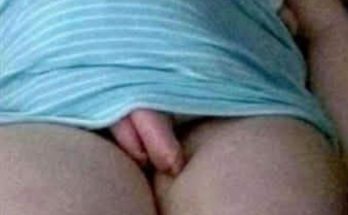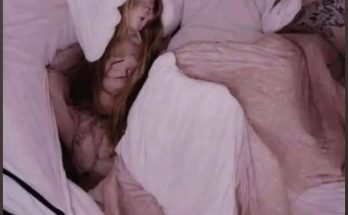I’m 46, married to the love of my life, and dad to a fourteen-year-old named Zoey. For years our house sounded like everything I’d hoped fatherhood would be—Laura humming over dinner, Zoey sprawled on the rug sketching dragons and cities, laughter bouncing down the hallway when I came home from work.
Ten months ago, it changed in a single favor. Laura’s brother, Sammy, blew up his marriage and landed with nowhere to sleep. Eighteen years married, zero years reliable. He ping-ponged through “big ideas” while his wife, Sarah, kept the lights on and raised their twin girls. When she finally filed for divorce, the judge saw what everyone already knew: she kept the house; he kept the debts—and custody of two furious sixteen-year-olds, Olivia and Sloane, who refused to live with their mother.
Laura asked me to let them stay “just for a few weeks.” I looked at her—at the woman who never asked for much—and said yes. I told myself it was the right thing. I told myself it was temporary.
The twins arrived like a storm front. Zoey—quiet, kind, happiest with a pencil and a playlist—became their target and their resource. They walked into her room without knocking, pawed through drawers, wore her sweaters stretched and stained, drained her markers dry, returned her school laptop sticky. When she asked them to please ask first, they smirked.
“Relax, princess baby,” Olivia said.
“Sharing is caring,” Sloane sang, like a taunt.
Zoey started coming to me in tears. “They read my journal, Dad. They laugh at my drawings.” I went to Sammy.
“Normal girl stuff,” he shrugged. “Bonding.”
Laura, caught in the performance, bought it. In front of her, Sammy washed dishes and took out trash with a halo. The twins lined up homework at the kitchen table and complimented dinner like it was a cooking show. Behind her, the masks slipped. When Zoey begged Laura for help, my wife sighed.
“Honey, they’re your cousins, not enemies. Maybe you’re not used to sharing.”
Sammy piled on. “Only child,” he said, oozing sympathy. “Jealousy’s tough.”
I watched my daughter shrink. Her voice thinned out, her shoulders curled, and every “please believe me” hit a wall. The night she grabbed my sleeve with shaking hands—“Dad, why won’t anyone listen?”—I felt something cold lock into place. Talking wasn’t going to undo this. Evidence would.
The next morning I bought three tiny cameras—HD, night vision, audio—and hid them: one behind books on Zoey’s shelf, one in the hallway where the worst “accidents” supposedly happened, one tucked into the entertainment center. If I was wrong, I’d delete it all. If I was right, it would be undeniable.
It took three days.
Clip after clip landed like punches. The twins raiding Zoey’s room when she was at school, trying on her clothes while mocking her taste. Rifling her desk and reading her journal aloud in cartoon voices before tossing it to the floor. In one video Zoey reached for her own sweater; Olivia shoved her hard enough to slam her into the dresser. They laughed while Zoey blinked back tears. The worst was Sloane nudging Zoey’s brand-new laptop off the desk. The screen cracked in a spider-web bloom. “Oops, butterfingers,” Olivia giggled while Zoey stared, stricken.
I sat in my office with my fists pressed to my mouth, the glow of the screen turning my rage into something ice-bright and focused. If I stormed out, they’d cry, deny, twist. I wanted a mirror none of them could look away from.
A week later, I announced movie night.
Everyone gathered in the living room with popcorn and blankets. I queued up a folder instead of Netflix. The first hallway shot drew a confused frown from Laura and a chuckle from Sammy.
“What is this supposed to—”
Then the girls appeared on-screen, slipping into Zoey’s room. The room itself went silent. For forty-five minutes I let the footage run: the stealing, the shoves, the smirks, the cracked laptop, the “butterfingers.” Laura’s face folded in on itself; Sammy’s confidence bled out. Beside me, Zoey whispered, “That’s what I was trying to tell you,” and wiped at her cheeks.
“Turn it off!” Sloane lunged for the remote. “You can’t show this!”
“It’s done,” I said, and paused the video on the shattered screen. “You and your daughters will pack and leave tonight.”
Sammy opened his mouth. Laura beat him there, her voice low and shaking. “Get out. How could you let them treat my baby like that? How did I not see it?”
Two hours later, they were gone—garbage bags, slammed drawers, muttered excuses evaporating in the hallway air. The front door closed. Laura sagged onto the couch and pulled Zoey into her arms.
“I’m sorry,” she sobbed. “I should’ve believed you.”
Zoey tucked into her and said, small but certain, “It’s okay, Mom. Dad made sure you saw.”
That night I put the cameras away and sat in the quiet house that finally felt like ours again. I kept replaying Zoey’s shaking hands, the way her voice kept cracking against our disbelief. Sometimes being a father is fixing leaky sinks and algebra homework. Sometimes it’s putting a spotlight on the truth when words won’t carry it. Sometimes it’s giving your kid proof when the grown-ups forget how to listen.
In the days that followed, the house sounded like itself again—pencils scratching, Laura humming, laughter unforced. We replaced the laptop. We bought new markers. We knocked before we entered. And when Zoey talked, we leaned in.



